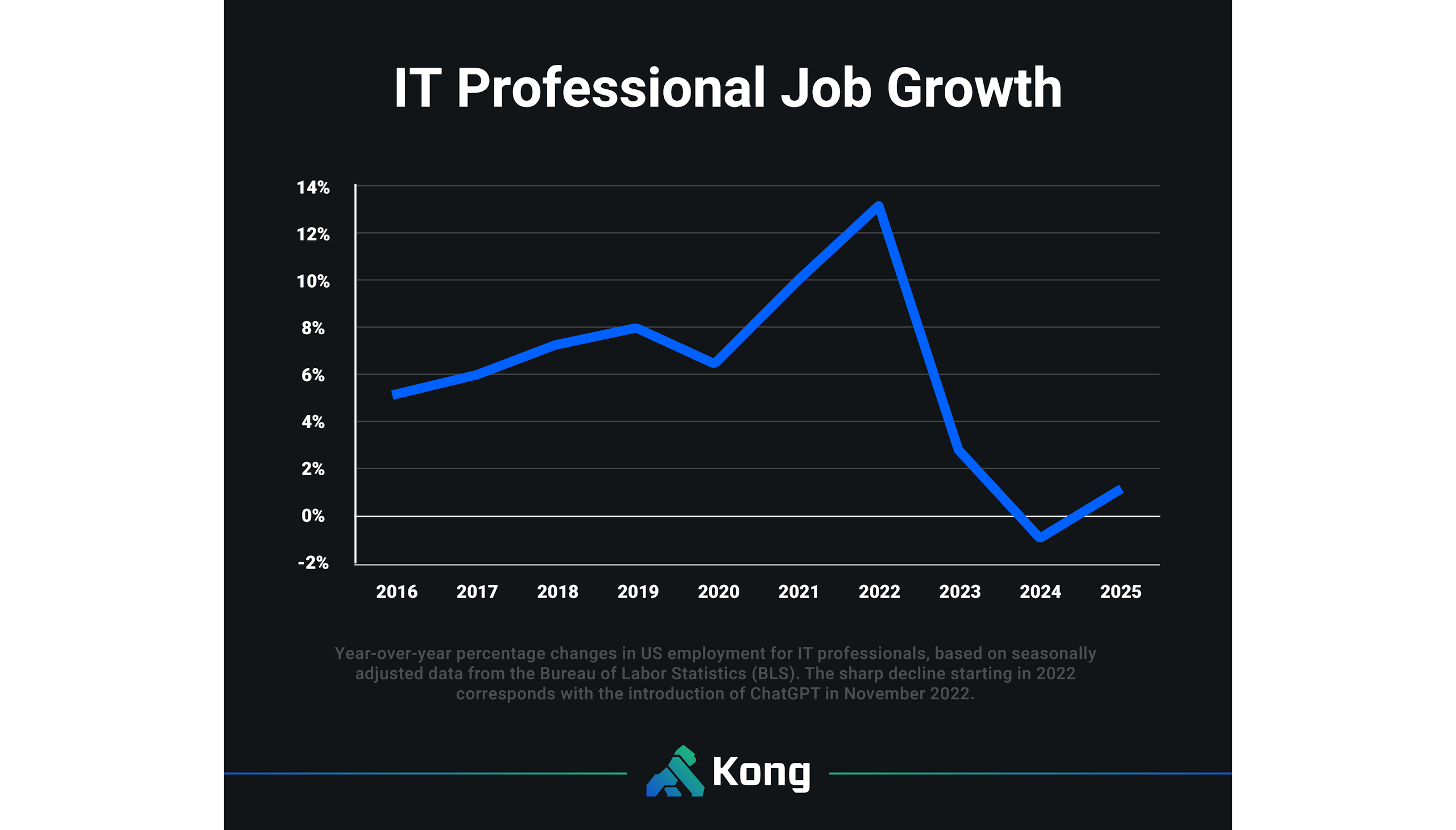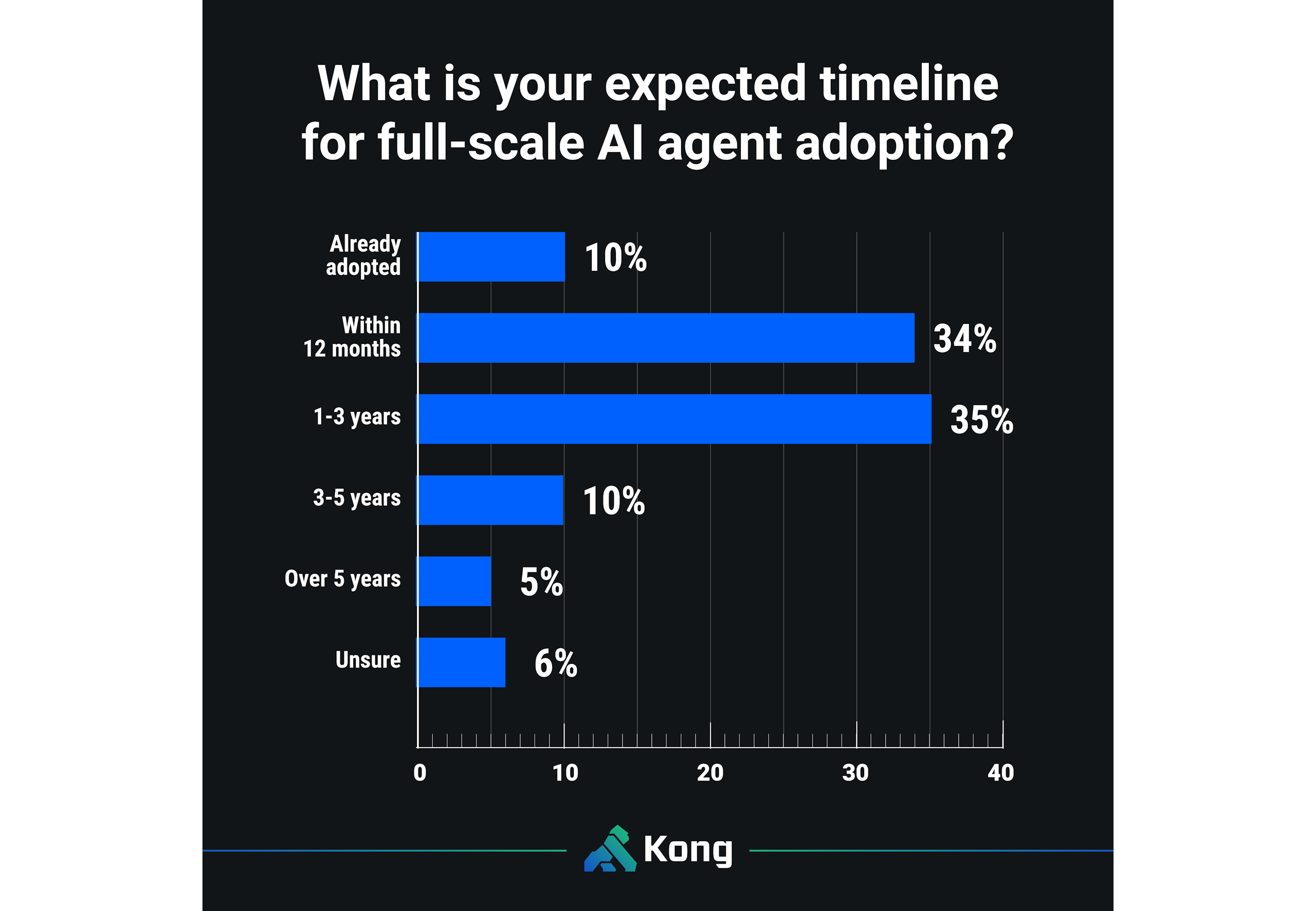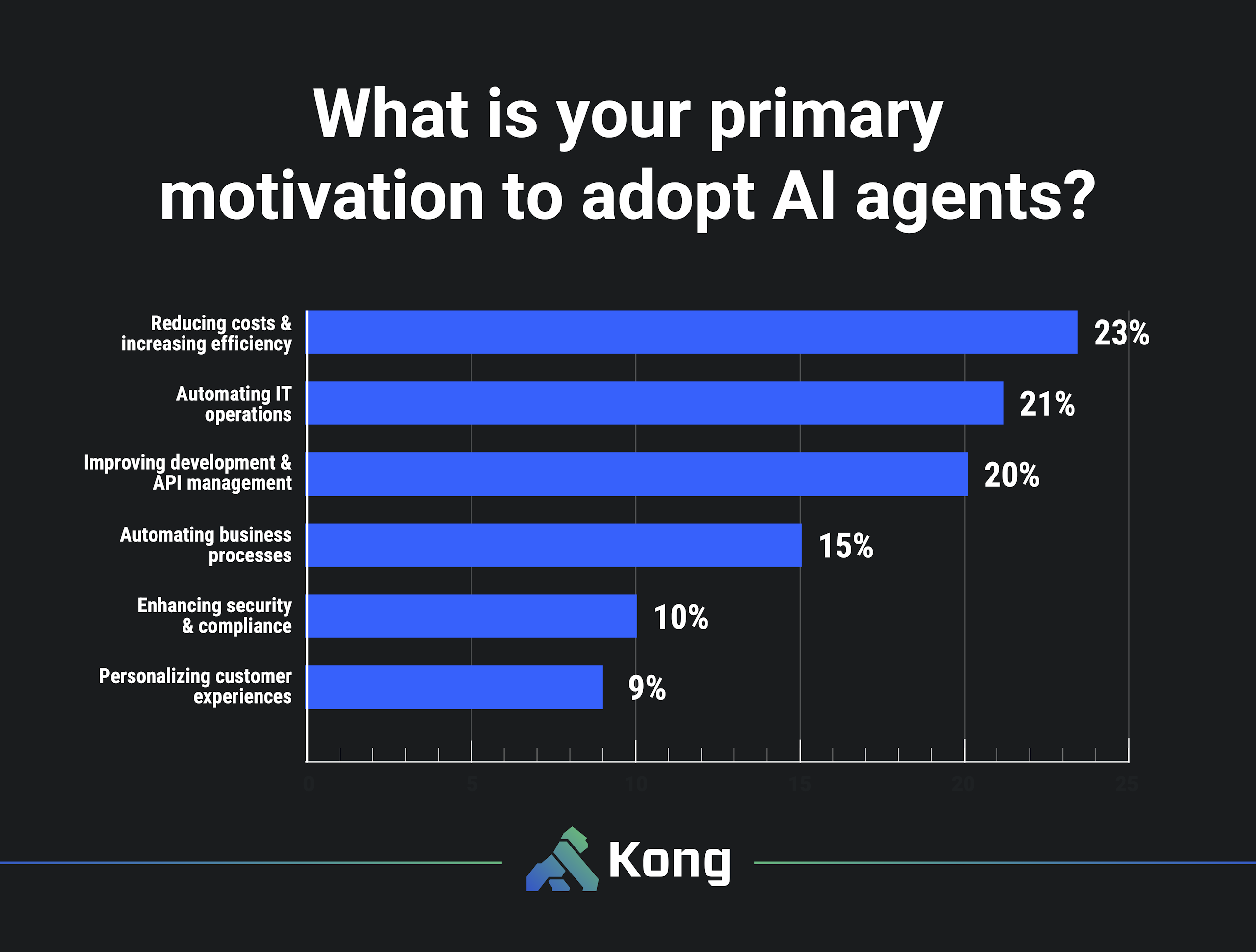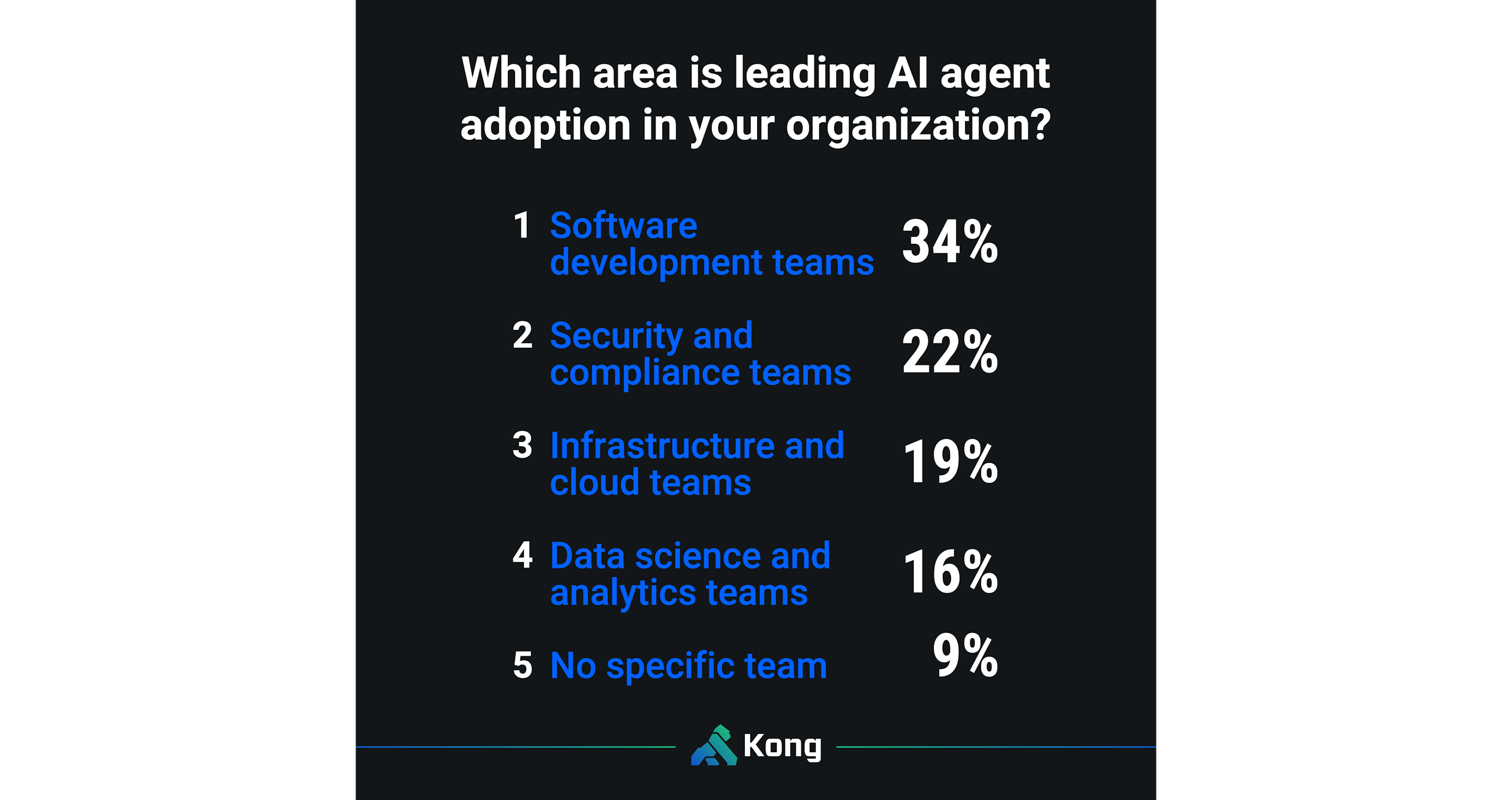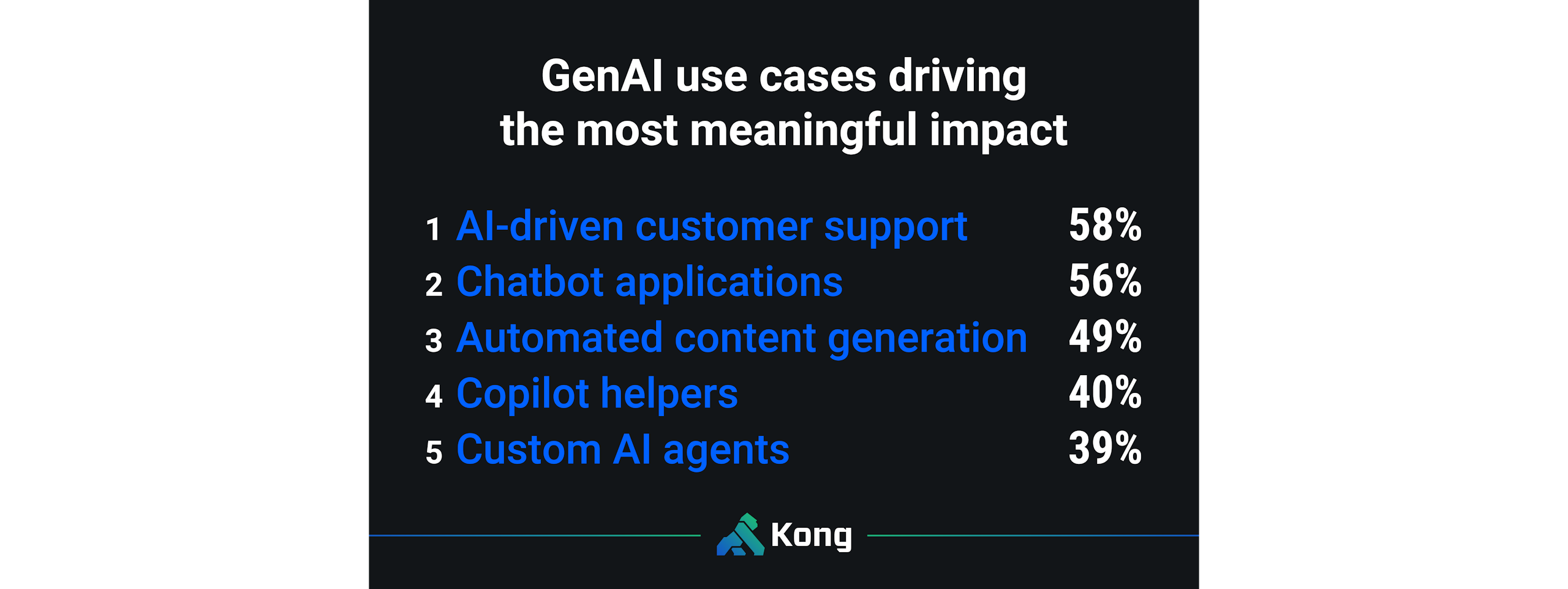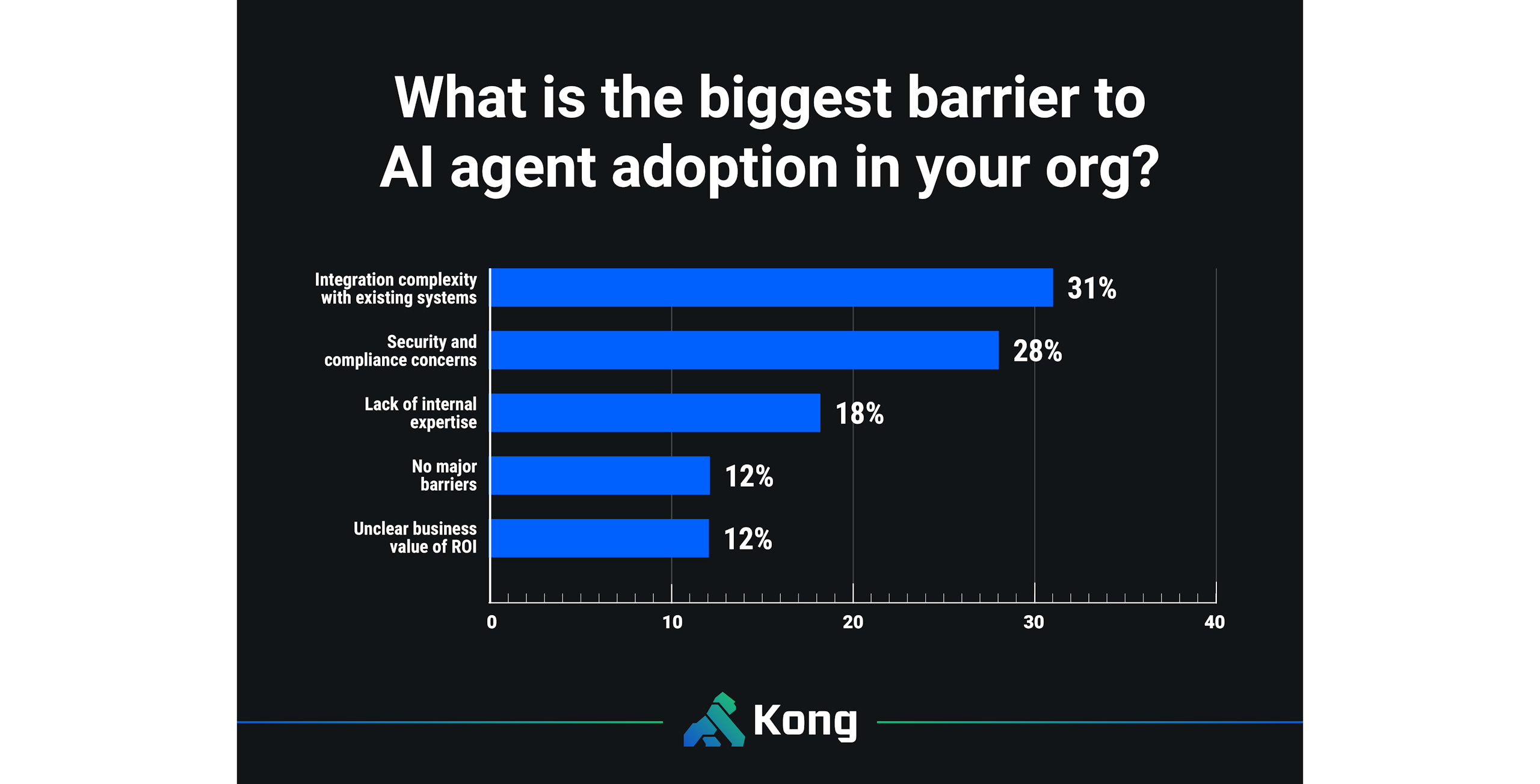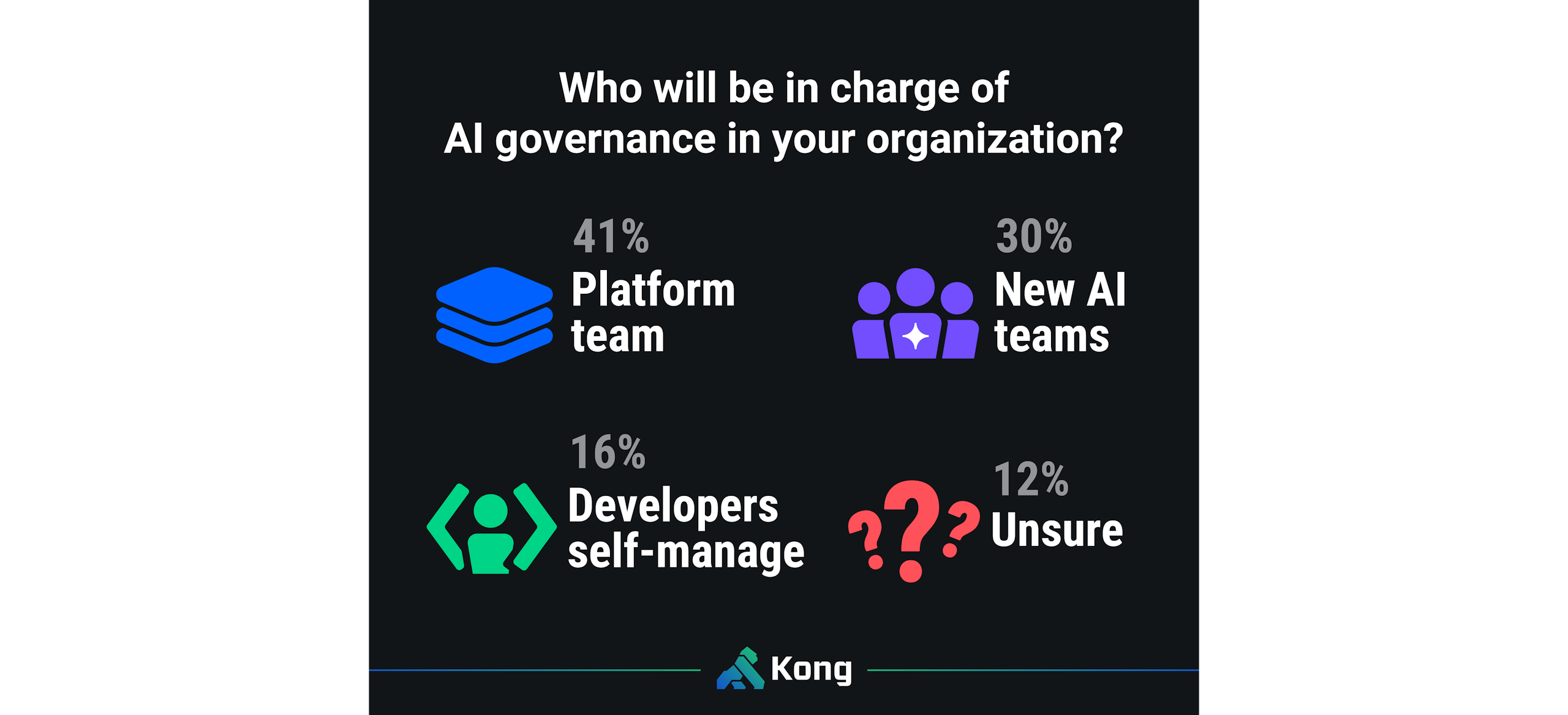Security and compliance concerns were close behind at 28%. As AI agents gain access to sensitive systems and data, organizations are rightfully cautious. Compliance with privacy regulations, auditability, and ensuring proper authentication are top of mind.
Notably, very few organizations doubted the business value of agentic AI. Only 12% of respondents said unclear ROI was their biggest concern, suggesting that most enterprises already see a clear path to value if they can overcome integration and governance challenges.
Why is AI governance essential for enterprise agentic AI adoption?
To tackle these hurdles, enterprises are leaning heavily on governance. Nearly three-quarters (72%) of surveyed organizations have an AI governance solution in place. Among those, over half rely on an AI gateway, a specialized middleware layer that manages, secures, and monitors interactions between AI systems and enterprise infrastructure.
An AI gateway provides policy enforcement, access control, and observability, ensuring that agentic AI can be deployed at scale without undermining compliance or introducing new risks. For many organizations, it’s the missing link that allows them to balance speed and control.
Ownership of governance responsibilities is still evolving. In many cases, platform teams (41%) are leading the charge, given their experience managing APIs and infrastructure. Others are creating dedicated AI teams (30%), while some are taking a decentralized approach, asking developers to follow guidelines without centralized oversight.


